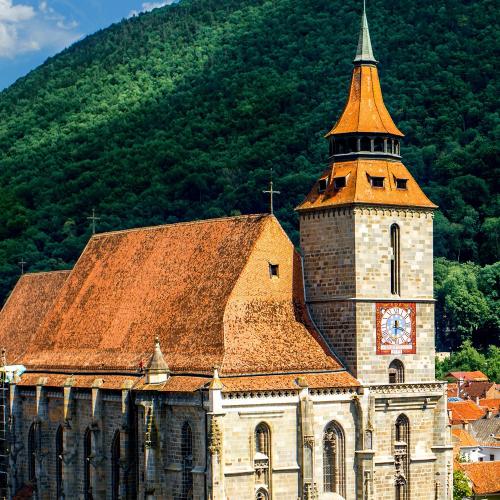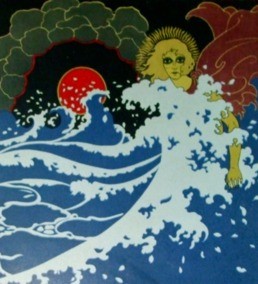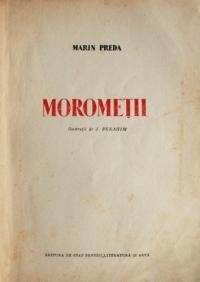Iona by Marin Sorescu


Published in 1968, in the magazine "Luceafărul", "Iona" was subtitled by Marin Sorescu "tragedy in four paintings" and belongs, together with "Paracliserul" and "Matca", to the dramatic trilogy suggestively entitled "The thirst of the salt mountain".
As a literary species, the play "Iona" by Marin Sorescu is a dramatic parable , a meditation on the condition of modern man, but also a monologue that cultivates allegory or metaphor. The work uses the technique of dialogued monologue , which highlights many ideas about human existence and destiny, by expressing their own reflections, opinions or concepts .
Although it starts from a biblical reason, this is not just a pretext for creating a drama about absolute loneliness which, incidentally, is also the theme of the drama.
The parable, at first glance, may seem trivial, but this is just the surface layer of the work, which tells the simple story of a fisherman who initially fishes sitting in the mouth of a whale, unaware of the danger that awaited him. The inevitable happens and he is swallowed by the whale, and despite the attempts to escape, he finds that he is the prisoner of an infinite series of bellies, because the first fish had been swallowed by another who in turn had become the victim of another.
An illustrative sequence for the theme of loneliness is the one in which Jonah loses his echo, at the beginning of painting I, which seems to cancel out his existence: "No more of my echo ... / It's not over, it's over. Bad sign. "
Although the end of the play contains a gesture of apparent despair, namely the suicide of the character, the deep layer of the parable hides behind the easy monologue, philosophical ideas about the fate of modern man who is doomed to absolute loneliness.
The four paintings of the play capture the evolution of a single character -Iona- who speaks "to make noise". The impression is monologue, but the lines of dialogue show, in fact, that the character speaks to himself, a communication between ego and alter-ego, without being truly subjective .
Time and space have symbolic value in modern theater. Specified in the scenic indications at the beginning of each painting, the space has metaphorical value and belongs almost exclusively to the imaginary: the aquarium, the beach, the bellies of the fish, the windmill. The absence of historical time, the timeless situation, the demystification are aspects of the modern tragedy, and the temporal relations emphasize, mainly, the discontinuous perspective of the psychological time that potentiates the inner states of the character.
The conflict of the play is internal, it is materialized in the tragic cry of the lonely individual, who makes desperate efforts to find his identity and the inability to move forward on the path of freedom and assumption of his own destiny.
The title could be interpreted as consisting of the particle "io" which means master, lord and "na", with the familiar meaning of "ia", naming the character of the play that appears in a triple hypostasis: fisherman, traveler and listener.
Over time, there have been two interpretations attributed to the text that have totally different views on the message conveyed by the play. On the one hand, it is the political interpretation, according to which the fish was considered the symbol of the totalitarian regime, which restricted human freedoms and from which no one escaped, and, on the other hand, the philosophical interpretation, offered by its author himself. In connection with the message of the work, he states that: "I only know that I wanted to write something about a man alone, wonderfully alone."
The piece is loaded with symbols, so the existence of several fish, like windows placed next to each other, represents the impossibility of getting out of this state: “All things are fish. We also live as we can inside ”.
Although he is in the hands of destiny, man is superior in that he thinks, as Pascal claims: "Man is a reed, but a thinking reed" and after discovering this he asks the great questions of existence, he can decide for himself whether to accept existence or not. .
The end of the play, the suicide, is ritual, but we do not want an end like Albert Camus, it is not a way out of the existing condition, but a new beginning, it is a cure for loneliness, the character having the courage to oppose his condition as a toy of destiny.
In my opinion, the fisherman Iona represents the condition of the modern man who discovers himself in the universe and his aspiration towards knowledge and communication. The modern rewriting of the biblical myth in the work of Marin Sorescu gives the possibility to reveal the theme of hope as a way to escape from a closed world.
In conclusion, this drama is a parable, which through an allegory, a long series of metaphors, provides an example of life, from which the simple man learns that always the power, energy and solution to get out of a extreme situation is in itself, in its own capacity for survival.






















